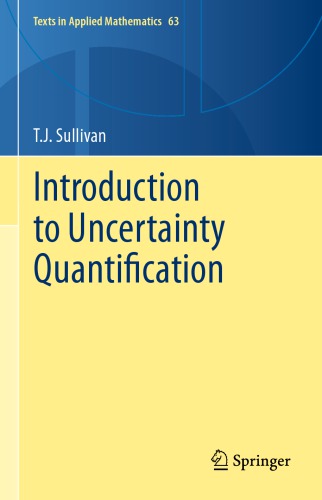

Most ebook files are in PDF format, so you can easily read them using various software such as Foxit Reader or directly on the Google Chrome browser.
Some ebook files are released by publishers in other formats such as .awz, .mobi, .epub, .fb2, etc. You may need to install specific software to read these formats on mobile/PC, such as Calibre.
Please read the tutorial at this link: https://ebookbell.com/faq
We offer FREE conversion to the popular formats you request; however, this may take some time. Therefore, right after payment, please email us, and we will try to provide the service as quickly as possible.
For some exceptional file formats or broken links (if any), please refrain from opening any disputes. Instead, email us first, and we will try to assist within a maximum of 6 hours.
EbookBell Team

5.0
38 reviewsThis text provides a framework in which the main objectives of the field of uncertainty quantification (UQ) are defined and an overview of the range of mathematical methods by which they can be achieved. Complete with exercises throughout, the book will equip readers with both theoretical understanding and practical experience of the key mathematical and algorithmic tools underlying the treatment of uncertainty in modern applied mathematics. Students and readers alike are encouraged to apply the mathematical methods discussed in this book to their own favorite problems to understand their strengths and weaknesses, also making the text suitable for a self-study.
Uncertainty quantification is a topic of increasing practical importance at the intersection of applied mathematics, statistics, computation and numerous application areas in science and engineering. This text is designed as an introduction to UQ for senior undergraduate and graduate students with a mathematical or statistical background and also for researchers from the mathematical sciences or from applications areas who are interested in the field.
T. J. Sullivan was Warwick Zeeman Lecturer at the Mathematics Institute of the University of Warwick, United Kingdom, from 2012 to 2015. Since 2015, he is Junior Professor of Applied Mathematics at the Free University of Berlin, Germany, with specialism in Uncertainty and Risk Quantification.